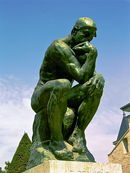Ph.D. Karl Hall (Budapest): 'The reconstruction of intellectual work' in Central and Eastern Europe.
Applied science and intellectual property after the Great War.
09.12.2013 um 18:00 Uhr
By the eve of the Great War, jurists, politicians, businessmen, engineers, and scientists alike had come to embrace patent law as a tool for fostering invention and industrial development, with the rigorous examination procedures of the German Imperial Patent Office setting the standard. The success of international trade and copyright agreements (Paris 1883, Berne 1886/1914) in reconciling various national systems did not dispel continued dissatisfaction with both principled and pragmatic aspects of patenting. The outbreak of hostilities destabilized intellectual property regimes and prompted further reform efforts, first in Hungary in 1916, then in anticipation of the nascent Polish state. In the most dramatic case the Bolsheviks abolished the Russian patent system altogether in 1919, but then relented and introduced a modern statute in 1924. The failed League of Nations debate about scientific property found echoes in all these states, though this did little to resolve the broader structural problem of how to deploy experts efficiently and “to control the damaging disconnection and specialization that techno-scientific life today has acquired.”
Historians of science and technology have since pursued disjoint strategies for explaining the frequent contemporary conflation of technology with applied science. The Hungarian émigré Michael Polanyi — consulting chemist and patent holder at the Siemens Research Laboratory in Berlin in the 1920s — makes an excellent proxy for connecting these historical and methodological dilemmas. He later strove mightily to separate high science from low technology in philosophical and political terms, yet in contrast to logical positivists he also saw science as deeply historical, traditional, and embodied. By recovering the context of his industrial, patent-oriented research, we can begin to grasp what patent lawyers have to teach us about how the “artisan, handwork character of science” persisted in the twentieth century, long after the heroic age of the solitary inventor had passed.
In cooperation with the department Geschichte Ost- und Südosteuropas
when? December 09, 2013. 6-8 p.m.
where? room 202 (Historicum/ LMU)


